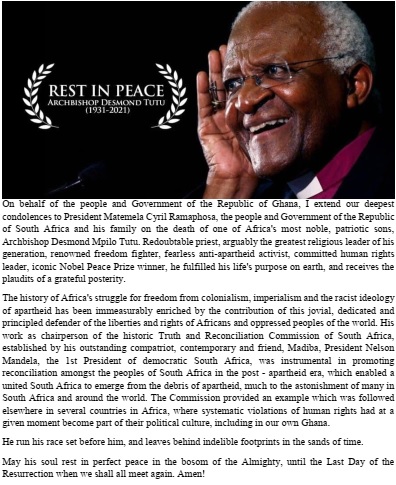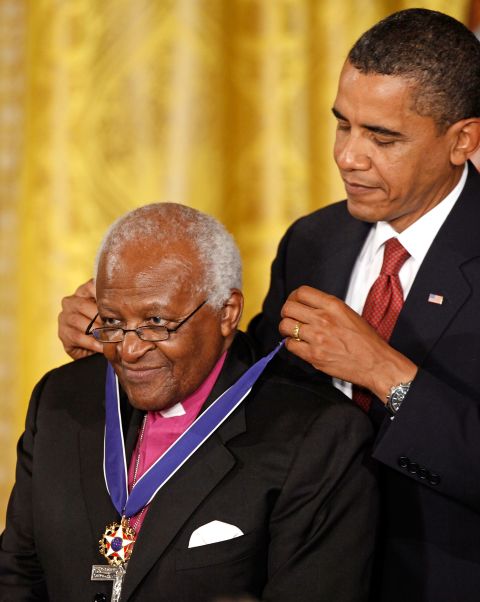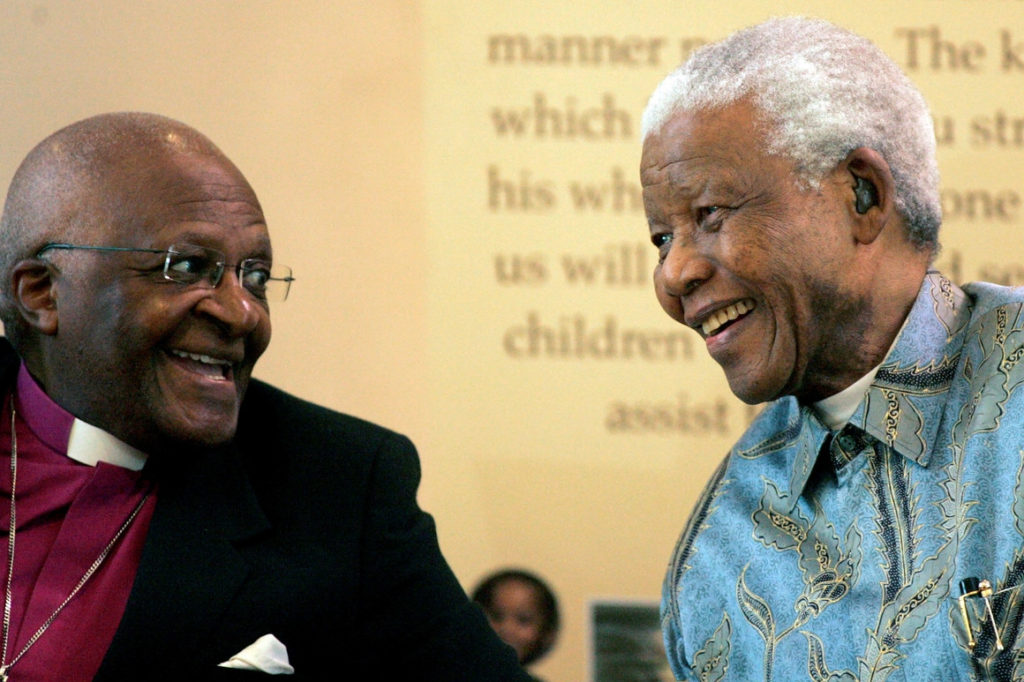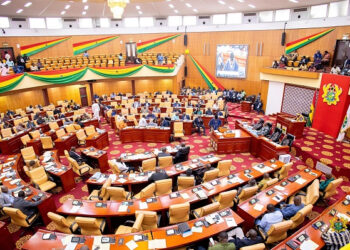President Akufo-Addo paid eloquent tribute to Archbishop Desmond Tutu, a South African anti-apartheid pioneer who died on December 26, 2021, at the age of 90.
Desmond Tutu is “one of Africa’s most noble and patriotic sons,” according to President Akufo-Addo, who “runs his race and leaves indelible imprints in the sands of time.”
President Akufo-Addo recalled the iconic Nobel Peace Prize winner’s role in Africa’s struggle for “liberation from colonialism, imperialism, and the racist ideology of apartheid” in a Facebook post, adding that the “jovial, dedicated, and principled defender of the liberties and rights of Africans and oppressed peoples of the world” has enriched Africa’s history.
THE FULL POST

Read also: UCC Vice-Chancellor shares Christmas messages
Meanwhile, South Africa is holding a week of events to mark the passing of the anti-apartheid leader.
The events include two days of lying in State before an official State funeral on January 1, 2022, in Cape Town.
Tributes have been pouring in from leaders around the world, including Queen Elizabeth II, US President Joe Biden and Pope Francis.
Desmond Tutu
A contemporary of anti-apartheid icon Nelson Mandela, he was one of the driving forces behind the movement to end the policy of racial segregation and discrimination enforced by the white minority government against the black majority in South Africa from 1948 until 1991.
He was awarded the Nobel prize in 1984 for his role in the struggle to abolish the apartheid system.
Tutu’s death comes just weeks after that of South Africa’s last apartheid-era president, FW de Clerk, who died at the age of 85.
Known affectionately as The Arch, Tutu was instantly recognisable, with his purple clerical robes, cheery demeanour and almost constant smile.
He was not afraid to show his emotions in public, including memorably laughing and dancing at the opening ceremony of the football World Cup in South Africa in 2010.
Despite his popularity though he was not a man who was loved by all. He was very critical of the government in the post-apartheid era, when, at times, he felt it was misrepresenting South Africa.

Ordained as a priest in 1960, he went on to serve as bishop of Lesotho from 1976-78, assistant bishop of Johannesburg and rector of a parish in Soweto. He became Bishop of Johannesburg in 1985, and was appointed the first black Archbishop of Cape Town the following year. He used his high-profile role to speak out against oppression of black people in his home country, always saying his motives were religious and not political.
After Mandela became South Africa’s first black president in 1994, Tutu was appointed by him to a Truth and Reconciliation Commission set up to investigate crimes committed by both whites and blacks during the apartheid era.
He was also credited with coining the term Rainbow Nation to describe the ethnic mix of post-apartheid South Africa, but in his later years he expressed regret that the nation had not coalesced in the way in which he had dreamt.

SOURCE: ATLFMNEWS



























